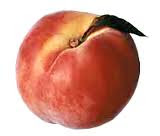Jeff has taken it upon himself to record the first 19 stanzas of In the Next Life while playing his guitar and posted his recording on the internet. I am not entirely comfortable with being billed as a songwriter, particularly of a piece that alternates between ear-jarring chords and bouncy pop music, but he assures me that it will garner more attention to my work, and if it fails at that, I suppose it has done no harm. In any case, while working with him on this project I made some small changes to these stanzas, so I'll republish them:
CANTO I: THE CREATION
In which several concerned persons undertake to save the world by exploiting its impending destruction, and a sort of robot is employed to this purpose, being designed to carry people in hostile environments for extended periods.
Do you ever get the feeling that ‘free will’ is a joke?
—The Book of the Subgenius, Chapter 0
I watched a pair of cardinals today.
The hen and cock were never far apart.
They always stay together, experts say.
I must confess a warming of my heart.
Now, any male chimpanzee, so I’ve heard,
obtains what sex he can without regard
for whom he had before, unlike the bird
who, with his mate, brings cheer to my back yard.
So why is it that I do not possess
the nature of our closer relative?
I envy his uncurbed licentiousness,
and yet I’m like the finch in how I live.
Not only do I act that way; I’m proud
to be devoted to my only bride.
Fidelity is what we say aloud.
A lapse therein is something we must hide.
If like a chimp, I’d be so much more free.
With women I would share no more than fun.
I would not take responsibility
for what might happen after I am done.
Chimpanzees, one might say, don’t have our brains.
They haven’t near as much to learn, at least.
A mother ape, by instinct, merely trains
her young to gather food, just like a beast.
Our aptitudes increase as knowledge grows.
We gain a big advantage when we’re taught.
We think, invent, establish, and propose.
That extra parent’s handy, is he not?
Okay, that’s fine so far: We’ll say a dad’s
behavior is adaptive; that’s resolved.
But not too long ago, all men were cads.
How rapidly have families evolved?
Besides, if fatherhood were ours innate,
then men not brought up right would still behave
a lot more like the rest, whose chosen fate
is kin to volunteering as a slave.
That’s not to say, I should point out, that men
are under women’s orders. That’s too far.
It just seems rather self-defeating when
considering what our genetics are.
Could modified selection be the key?
Some values might have made their holders act
in ways that gave the holders’ progeny
a start in life that other children lacked.
Let’s take a value, then, down to its core.
What mechanism causes one to feel
that some things rate, and others even more?
Could it be tangible? Could it be real?
Well, if it is, we’d find it in our heads—
arrangements of the nerve cells, things like that—
a pattern that repeats, with varied threads,
depending on the neural habitat.
A pattern that’s translated into speech
or other media the pattern finds.
And as we argue, entertain, and teach,
we spread these patterns to each other’s minds.
What are these minds thus modeled by these molds?
They’re parts of organisms that have grown
from blueprints. Who wrote them? Who drew the folds
through which words pass as we play Telephone?
Some scientists are now describing genes
as patterns that maintain themselves through time
by changing raw materials to machines
that pass them on—a useful paradigm.
There might be meta-players at that game,
as certain kinds of thinking have been thought
to use the human mind to stay the same.
Perhaps this is the “is” that makes the “ought”.
I’ll leave it up to greater minds than mine
to tell us why our genes cooperate.
We’d have to view the whole ancestral line.
That’s more than I can handle at this date.
So, what I’d like to do today instead
is follow one of these things for a while
and see the possibilities ahead.
We’ll skip the past and turn another dial.
©2010 Louis A. Merrimac
Subscribe to:
Post Comments (Atom)

No comments:
Post a Comment